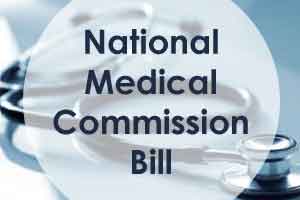- Home
- Medical news & Guidelines
- Anesthesiology
- Cardiology and CTVS
- Critical Care
- Dentistry
- Dermatology
- Diabetes and Endocrinology
- ENT
- Gastroenterology
- Medicine
- Nephrology
- Neurology
- Obstretics-Gynaecology
- Oncology
- Ophthalmology
- Orthopaedics
- Pediatrics-Neonatology
- Psychiatry
- Pulmonology
- Radiology
- Surgery
- Urology
- Laboratory Medicine
- Diet
- Nursing
- Paramedical
- Physiotherapy
- Health news
- Fact Check
- Bone Health Fact Check
- Brain Health Fact Check
- Cancer Related Fact Check
- Child Care Fact Check
- Dental and oral health fact check
- Diabetes and metabolic health fact check
- Diet and Nutrition Fact Check
- Eye and ENT Care Fact Check
- Fitness fact check
- Gut health fact check
- Heart health fact check
- Kidney health fact check
- Medical education fact check
- Men's health fact check
- Respiratory fact check
- Skin and hair care fact check
- Vaccine and Immunization fact check
- Women's health fact check
- AYUSH
- State News
- Andaman and Nicobar Islands
- Andhra Pradesh
- Arunachal Pradesh
- Assam
- Bihar
- Chandigarh
- Chattisgarh
- Dadra and Nagar Haveli
- Daman and Diu
- Delhi
- Goa
- Gujarat
- Haryana
- Himachal Pradesh
- Jammu & Kashmir
- Jharkhand
- Karnataka
- Kerala
- Ladakh
- Lakshadweep
- Madhya Pradesh
- Maharashtra
- Manipur
- Meghalaya
- Mizoram
- Nagaland
- Odisha
- Puducherry
- Punjab
- Rajasthan
- Sikkim
- Tamil Nadu
- Telangana
- Tripura
- Uttar Pradesh
- Uttrakhand
- West Bengal
- Medical Education
- Industry
IMA's battle against National Medical Council Bill

Delhi: Trust forms the crux of doctor-patient relationship, but Indian Medical Association (IMA) believes that it has been declining over the past few years owing to hugely inflated bills and overcharging for drugs, devices or diagnostics for profiteering.
Aimed at reforming the medical education sector, IMA claims that the National Medical Council (NMC) Bill will, in reality, have a damaging effect on public health as well as meritorious students from economically-weaker sections seeking admission to medical colleges.
The NMC Bill proposes to increase the proportion of seats under control of management in private medical colleges from 15 percent to 60 percent and allows Ayush doctors to practice modern system of medicine after completing a 'bridging course', which intends to bridge the gap between demand and supply.
IMA strongly opposes some provisions of the bill, stating that they can have disastrous consequences on public health as it will result in half-baked doctors and an unscientific mixing of two systems of medicine, which have no common meeting ground.
It will become mandatory for MBBS graduates to clear a licentiate examination to get a license to practice. Those students who pass MBBS but fail in the licentiate exam will not be allowed to practice.
According to IMA, this will increase unemployment among MBBS graduates at a time when India already faces a shortage of doctors in the country with less than one doctor for every 1000 population against the recommended ratio of 1:1000.
According to a report, the government spends only around one percent of Gross domestic product (GDP) on healthcare and out-of-pocket expenditures on healthcare (62 percent) are one of the highest in the world.
Medical Dialogues Bureau consists of a team of passionate medical/scientific writers, led by doctors and healthcare researchers. Our team efforts to bring you updated and timely news about the important happenings of the medical and healthcare sector. Our editorial team can be reached at editorial@medicaldialogues.in.


